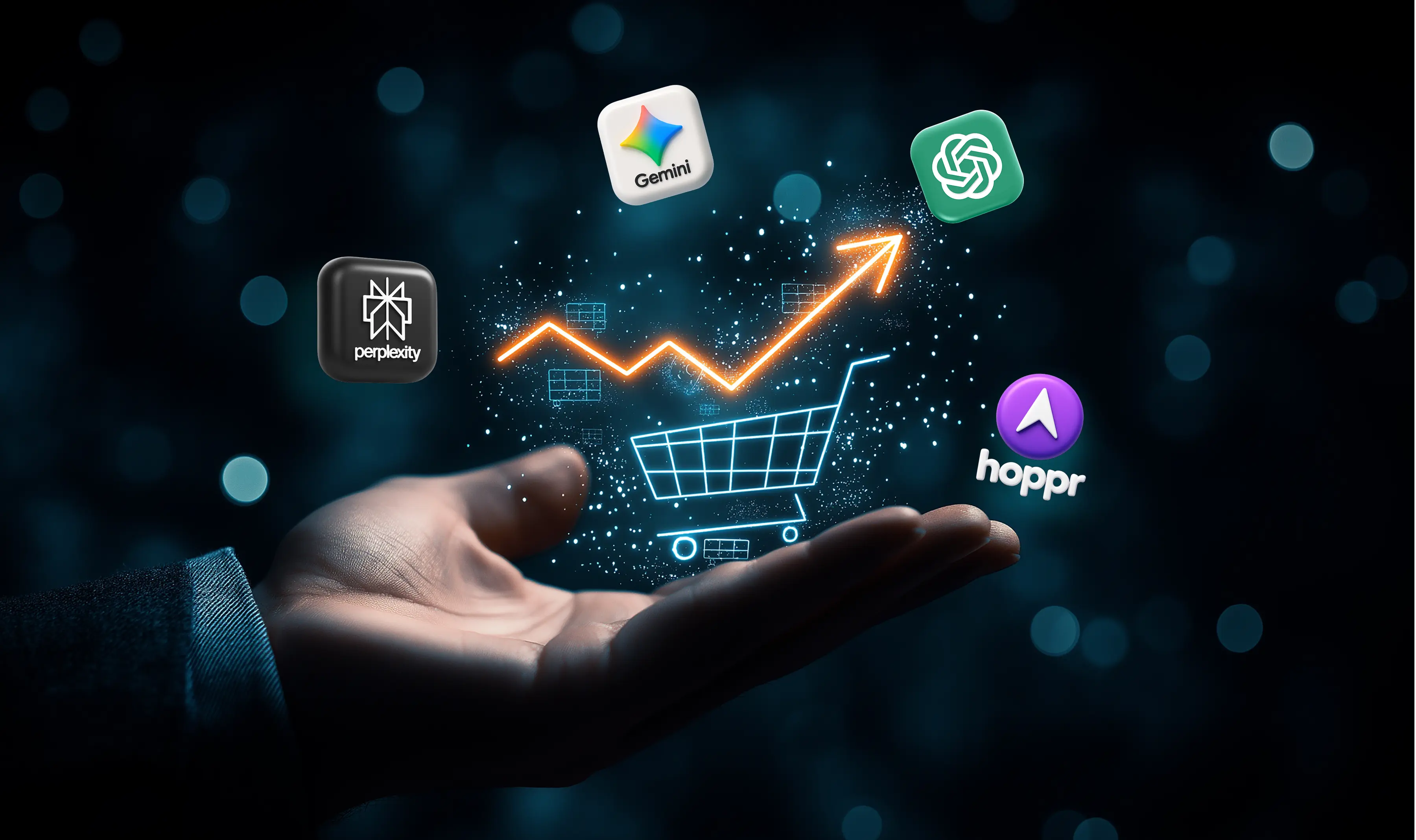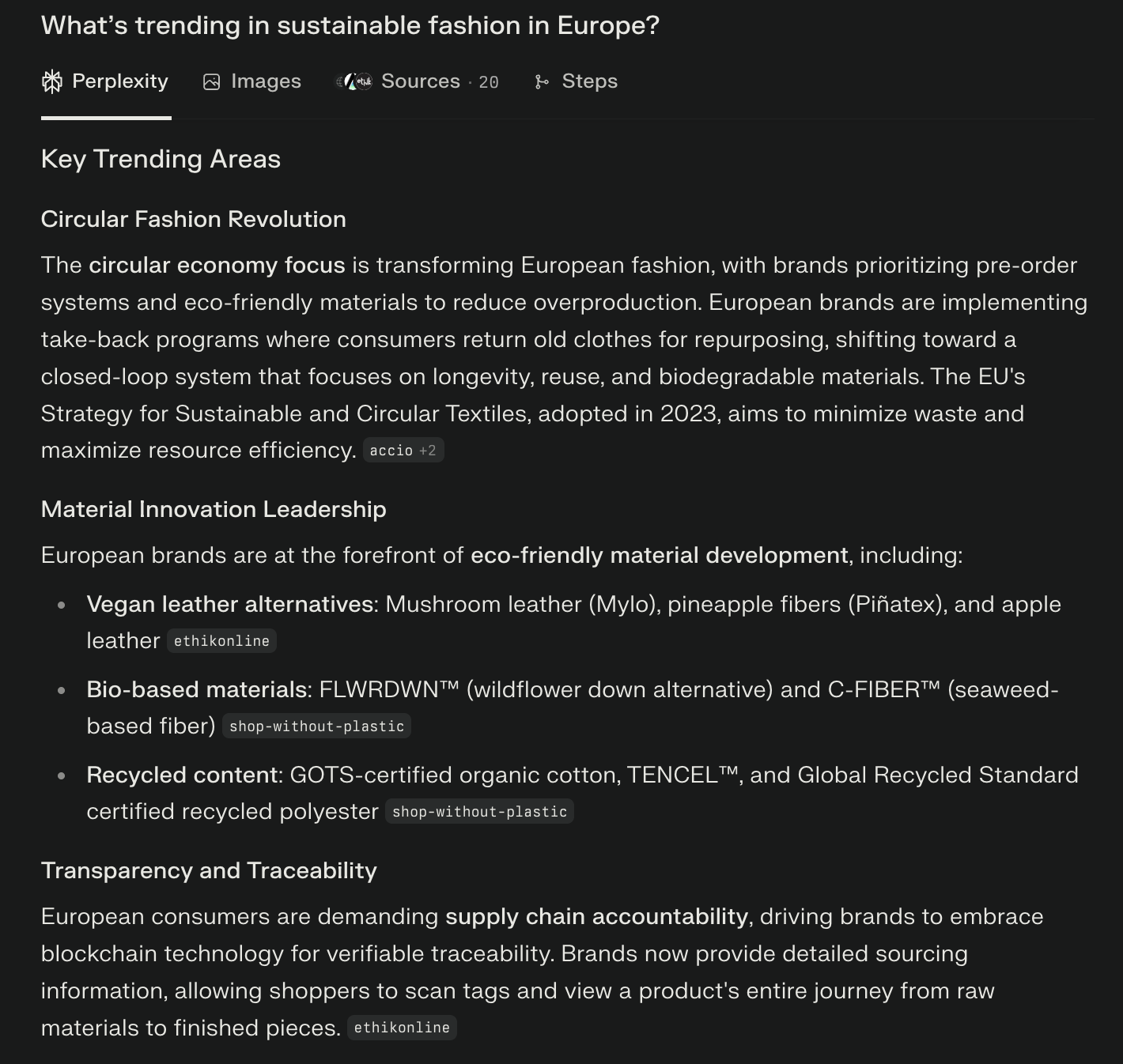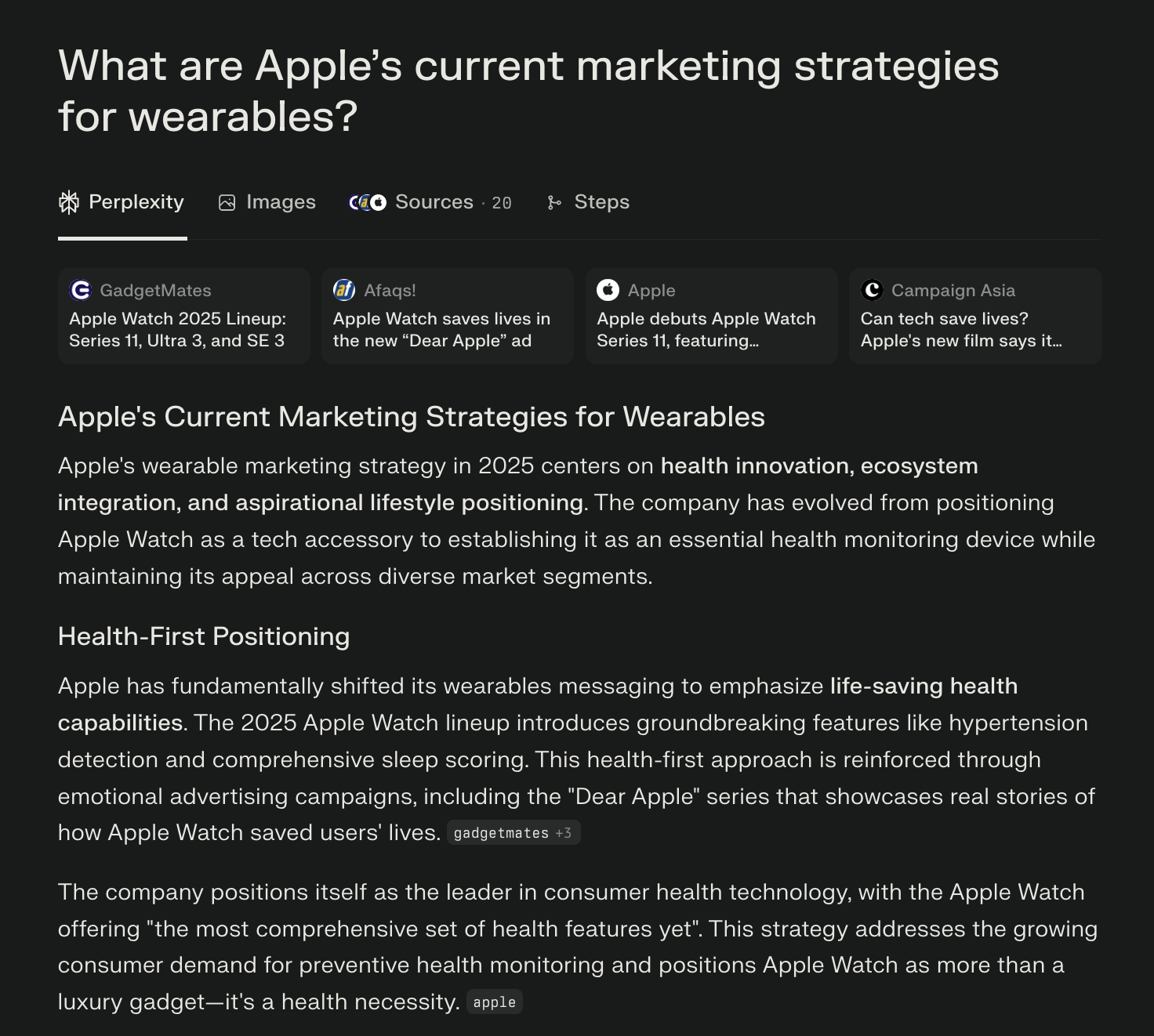
AI tools are no longer just fancy add-ons. They’re helping eCommerce brands do the heavy lifting every day.
AI agents help brands create personalized customer journeys, adjust pricing on the fly, simplify operations, and launch smarter marketing campaigns. On top of that, they can spot trends before they take off, handle repetitive tasks, and surface insights that guide better decisions.
In this post, we’ll take a closer look at AI agents that target different pieces of the eCommerce puzzle, like improving customer engagement, boosting sales, and making a tangible overall impact across the space.
Let’s dive right in!
AI isn’t just backing up eCommerce anymore, it’s taken the driver’s seat, steering growth across content, marketing, search, and operations. Let’s look at the tools making it happen.
ChatGPT is one of the most talked-about AI tools in eCommerce, and why not? It understands natural language and generates text that feels human, making it a powerful ally for content-heavy tasks. Put it to work on product descriptions, personalized campaigns, or other marketing efforts, and it will keep your communication sharp and scalable, while saving you hours along the way.
Writing product descriptions by the hundreds can drain hours, but ChatGPT can generate them in seconds.
That doesn’t mean it’s as generic as a “blue cotton shirt.” It can create a copy that sells, like “A breathable cotton shirt designed for all-day comfort, perfect for both work and weekends.” Over and above that, you can spin out multiple ad variations for Google Ads or Meta, making A/B testing quicker and boosting campaign results.
ChatGPT takes the heavy lift out of personalization and makes it scalable. Say, a beauty brand wants to push a moisturizer to two separate audiences, an older and a younger crowd.
ChatGPT could whip up one email highlighting anti-aging benefits for a 40+ audience, and another focusing on hydration. This kind of tailored messaging grabs attention, boosts engagement, and turns more browsers into buyers.
Perplexity is often called a “smarter search engine,” but it’s more like a research buddy for eCommerce brands. It pulls in real-time data, connects the dots with AI, and gives you answers you can actually use. You can count on this tool for market research, competitor intel, or a quick read on trends.
As your intelligent research partner, you can ask Perplexity one question, say - “What’s trending in sustainable fashion in Europe?” and get a clear, consolidated answer in seconds instead of wading through endless reports yourself. So, you spend less time searching and more time acting on insights while they still matter.

Perplexity also takes the pain out of competitor tracking. A D2C electronics brand, for instance, could simply ask, “What are Apple’s current marketing strategies for wearables?” and get structured insights back in minutes. That kind of intel makes it easier to fine-tune your positioning and stay one step ahead.

Gemini, previously known as Google Bard, is Google’s take on AI-powered productivity. It comes in handy for eCommerce brands looking to strategize content, do SEO research, or simply spot emerging trends. And because it plugs right into Google’s ecosystem, brands can use it to make sharper, data-backed content and marketing moves.
It’s a grind trying to come up with fresh content ideas constantly, but Gemini makes it easier. You can have it generate blog topics, FAQs, and even product descriptions in seconds.
For example, a skincare brand could ask, “What questions are people asking about retinol?” and instantly get a list of ideas they can turn into blog posts or product copy. So that’s less brainstorming time for you and more time publishing content that drives traffic.
%20-%20AI%20for%20SEO%20%26%20Content%20Optimization.png)
Beyond content, Gemini can dig into search trends and competitor performance too. Let’s say you’re a sportswear brand, you could ask which running shoe features (like cushioning or lightweight design) are getting the most attention. With that data in hand, you’re not just shaping blog posts, you’re also refining how you position your products to match what customers actually want.
Meta AI is baked right into Facebook and Instagram, giving eCommerce brands a serious edge on social. Use it to sharpen targeting, improve real-time customer support, and get more value out of every campaign and interaction.
Meta AI makes audience targeting feel almost effortless. For example, a baby products brand can run ads specifically for new parents in urban cities, showing diaper bundles or feeding kits. This kind of relevance not only boosts click-through rates but also cuts down on wasted ad spend.
Customers today want instant answers, and Meta AI delivers just that. Chatbots on Messenger or Instagram can handle questions like “Is this available in red?” or “When will my order be shipped?” right away. That frees up your human agents and keeps customer experience smooth and responsive.
With Meta AI, you can forget about tweaking campaigns by hand. Like, a fashion brand launches a new collection with multiple creatives. Meta AI figures out which visuals and messages perform best, then scales those ads automatically.
Hoppr is like having an AI-powered eCommerce analyst just a click away. It goes beyond dashboards by turning raw data into actionable insights you can actually use to grow, like sales forecasting, inventory planning, or smarter ad spend.
Hoppr gives eCommerce brands a live view of what’s working across stores, ads, and marketplaces. For example, a cosmetics brand could see which city’s sales are outperforming and allocate more budget to that region, all in real time.
Stockouts and overstocking kill profits, and Hoppr helps predict demand patterns so businesses can plan inventory with confidence. Picture a D2C apparel brand knowing exactly when to ramp up stock for a holiday campaign, no missed sales, no unsold piles left behind.
Not all ad channels deliver equally, and Hoppr helps you figure that out. It identifies which platforms and campaigns are driving the most ROI and reallocates budgets to maximize impact. Think of it as putting your ad dollars on autopilot, but with strategy built in.
Beyond the numbers, Hoppr also recommends strategies across marketing, sales, and operations. For example, if customer data shows rising demand in a specific region, Hoppr might suggest targeting that area with tailored campaigns, helping you capture growth opportunities faster.
AI is not at the center of how eCommerce brands grow.
Scaling in eCommerce today means leaning on AI to handle the heavy lifting across content, marketing, and analytics, leaving you and your team enough room to focus on making smarter decisions.
And, Hoppr gives you the head start you need with advanced analytics to turn every decision into an opportunity for growth.
AI tools are no longer just fancy add-ons. They’re helping eCommerce brands do the heavy lifting every day.
AI agents help brands create personalized customer journeys, adjust pricing on the fly, simplify operations, and launch smarter marketing campaigns. On top of that, they can spot trends before they take off, handle repetitive tasks, and surface insights that guide better decisions.
In this post, we’ll take a closer look at AI agents that target different pieces of the eCommerce puzzle, like improving customer engagement, boosting sales, and making a tangible overall impact across the space.
Let’s dive right in!
AI isn’t just backing up eCommerce anymore, it’s taken the driver’s seat, steering growth across content, marketing, search, and operations. Let’s look at the tools making it happen.
ChatGPT is one of the most talked-about AI tools in eCommerce, and why not? It understands natural language and generates text that feels human, making it a powerful ally for content-heavy tasks. Put it to work on product descriptions, personalized campaigns, or other marketing efforts, and it will keep your communication sharp and scalable, while saving you hours along the way.
Writing product descriptions by the hundreds can drain hours, but ChatGPT can generate them in seconds.
That doesn’t mean it’s as generic as a “blue cotton shirt.” It can create a copy that sells, like “A breathable cotton shirt designed for all-day comfort, perfect for both work and weekends.” Over and above that, you can spin out multiple ad variations for Google Ads or Meta, making A/B testing quicker and boosting campaign results.
ChatGPT takes the heavy lift out of personalization and makes it scalable. Say, a beauty brand wants to push a moisturizer to two separate audiences, an older and a younger crowd.
ChatGPT could whip up one email highlighting anti-aging benefits for a 40+ audience, and another focusing on hydration. This kind of tailored messaging grabs attention, boosts engagement, and turns more browsers into buyers.
Perplexity is often called a “smarter search engine,” but it’s more like a research buddy for eCommerce brands. It pulls in real-time data, connects the dots with AI, and gives you answers you can actually use. You can count on this tool for market research, competitor intel, or a quick read on trends.
As your intelligent research partner, you can ask Perplexity one question, say - “What’s trending in sustainable fashion in Europe?” and get a clear, consolidated answer in seconds instead of wading through endless reports yourself. So, you spend less time searching and more time acting on insights while they still matter.

Perplexity also takes the pain out of competitor tracking. A D2C electronics brand, for instance, could simply ask, “What are Apple’s current marketing strategies for wearables?” and get structured insights back in minutes. That kind of intel makes it easier to fine-tune your positioning and stay one step ahead.

Gemini, previously known as Google Bard, is Google’s take on AI-powered productivity. It comes in handy for eCommerce brands looking to strategize content, do SEO research, or simply spot emerging trends. And because it plugs right into Google’s ecosystem, brands can use it to make sharper, data-backed content and marketing moves.
It’s a grind trying to come up with fresh content ideas constantly, but Gemini makes it easier. You can have it generate blog topics, FAQs, and even product descriptions in seconds.
For example, a skincare brand could ask, “What questions are people asking about retinol?” and instantly get a list of ideas they can turn into blog posts or product copy. So that’s less brainstorming time for you and more time publishing content that drives traffic.
%20-%20AI%20for%20SEO%20%26%20Content%20Optimization.png)
Beyond content, Gemini can dig into search trends and competitor performance too. Let’s say you’re a sportswear brand, you could ask which running shoe features (like cushioning or lightweight design) are getting the most attention. With that data in hand, you’re not just shaping blog posts, you’re also refining how you position your products to match what customers actually want.
Meta AI is baked right into Facebook and Instagram, giving eCommerce brands a serious edge on social. Use it to sharpen targeting, improve real-time customer support, and get more value out of every campaign and interaction.
Meta AI makes audience targeting feel almost effortless. For example, a baby products brand can run ads specifically for new parents in urban cities, showing diaper bundles or feeding kits. This kind of relevance not only boosts click-through rates but also cuts down on wasted ad spend.
Customers today want instant answers, and Meta AI delivers just that. Chatbots on Messenger or Instagram can handle questions like “Is this available in red?” or “When will my order be shipped?” right away. That frees up your human agents and keeps customer experience smooth and responsive.
With Meta AI, you can forget about tweaking campaigns by hand. Like, a fashion brand launches a new collection with multiple creatives. Meta AI figures out which visuals and messages perform best, then scales those ads automatically.
Hoppr is like having an AI-powered eCommerce analyst just a click away. It goes beyond dashboards by turning raw data into actionable insights you can actually use to grow, like sales forecasting, inventory planning, or smarter ad spend.
Hoppr gives eCommerce brands a live view of what’s working across stores, ads, and marketplaces. For example, a cosmetics brand could see which city’s sales are outperforming and allocate more budget to that region, all in real time.
Stockouts and overstocking kill profits, and Hoppr helps predict demand patterns so businesses can plan inventory with confidence. Picture a D2C apparel brand knowing exactly when to ramp up stock for a holiday campaign, no missed sales, no unsold piles left behind.
Not all ad channels deliver equally, and Hoppr helps you figure that out. It identifies which platforms and campaigns are driving the most ROI and reallocates budgets to maximize impact. Think of it as putting your ad dollars on autopilot, but with strategy built in.
Beyond the numbers, Hoppr also recommends strategies across marketing, sales, and operations. For example, if customer data shows rising demand in a specific region, Hoppr might suggest targeting that area with tailored campaigns, helping you capture growth opportunities faster.
AI is not at the center of how eCommerce brands grow.
Scaling in eCommerce today means leaning on AI to handle the heavy lifting across content, marketing, and analytics, leaving you and your team enough room to focus on making smarter decisions.
And, Hoppr gives you the head start you need with advanced analytics to turn every decision into an opportunity for growth.